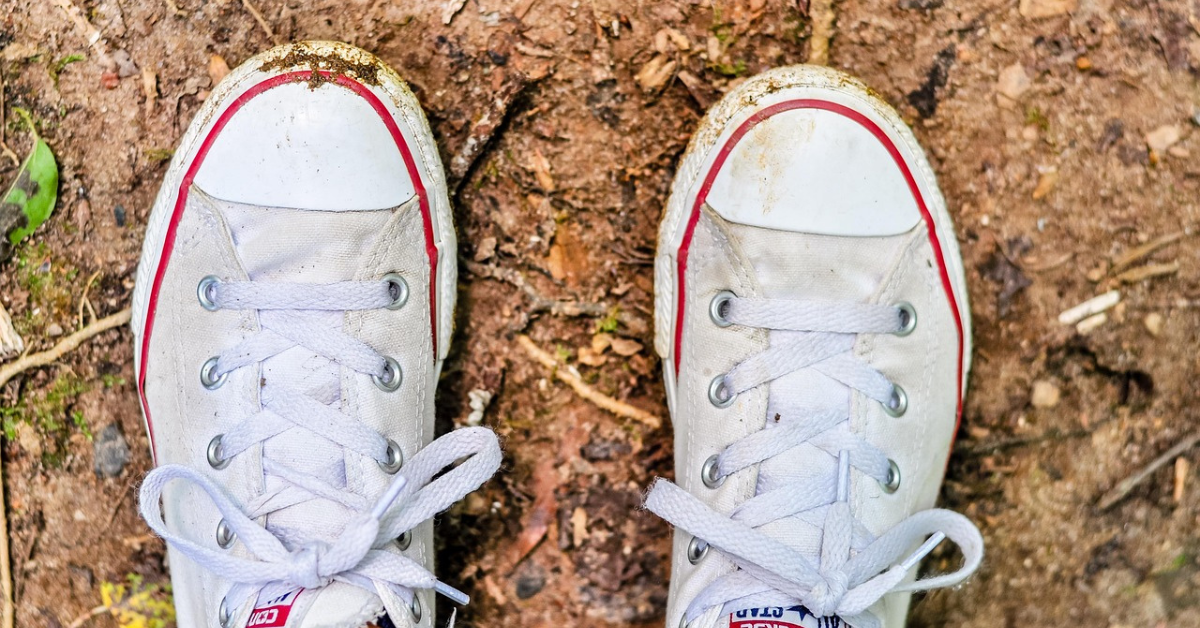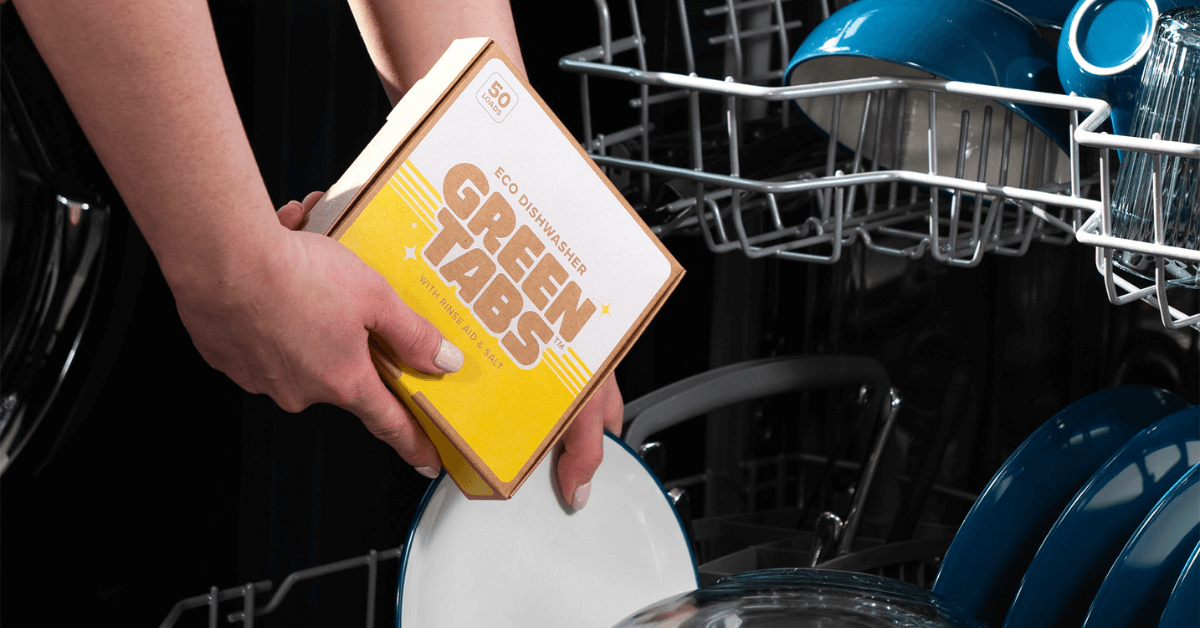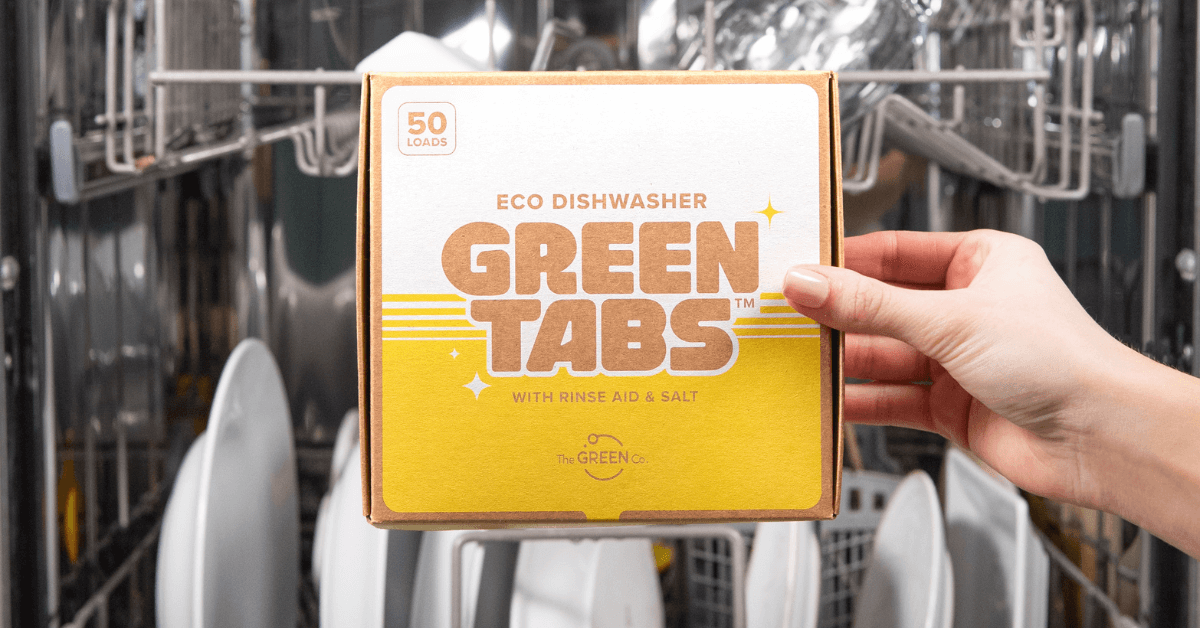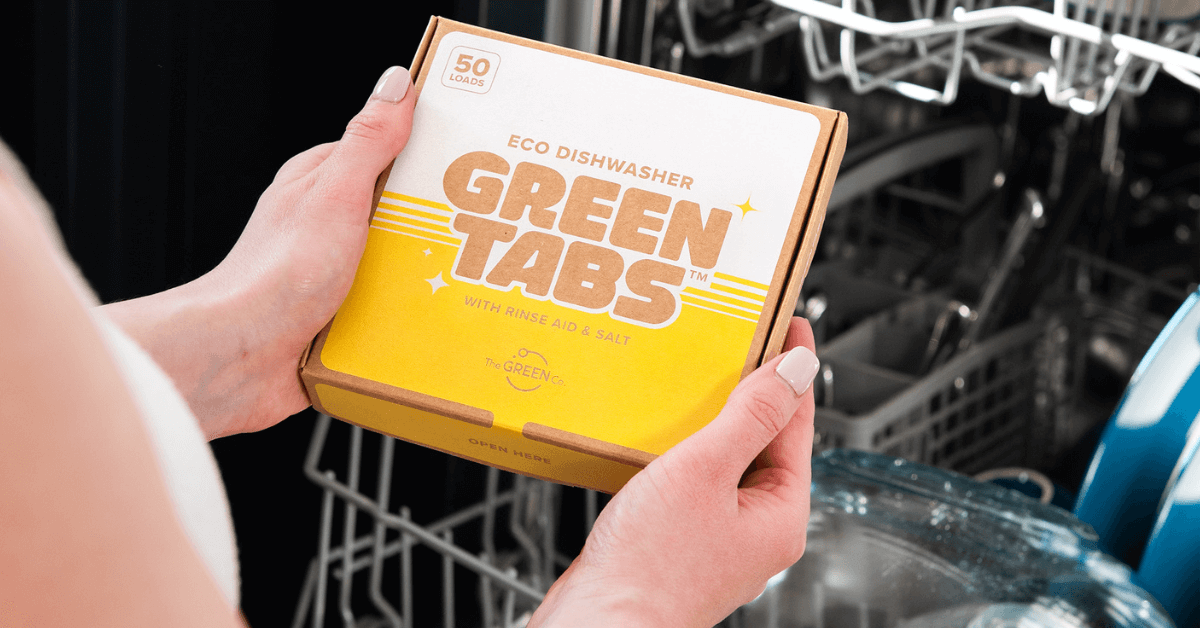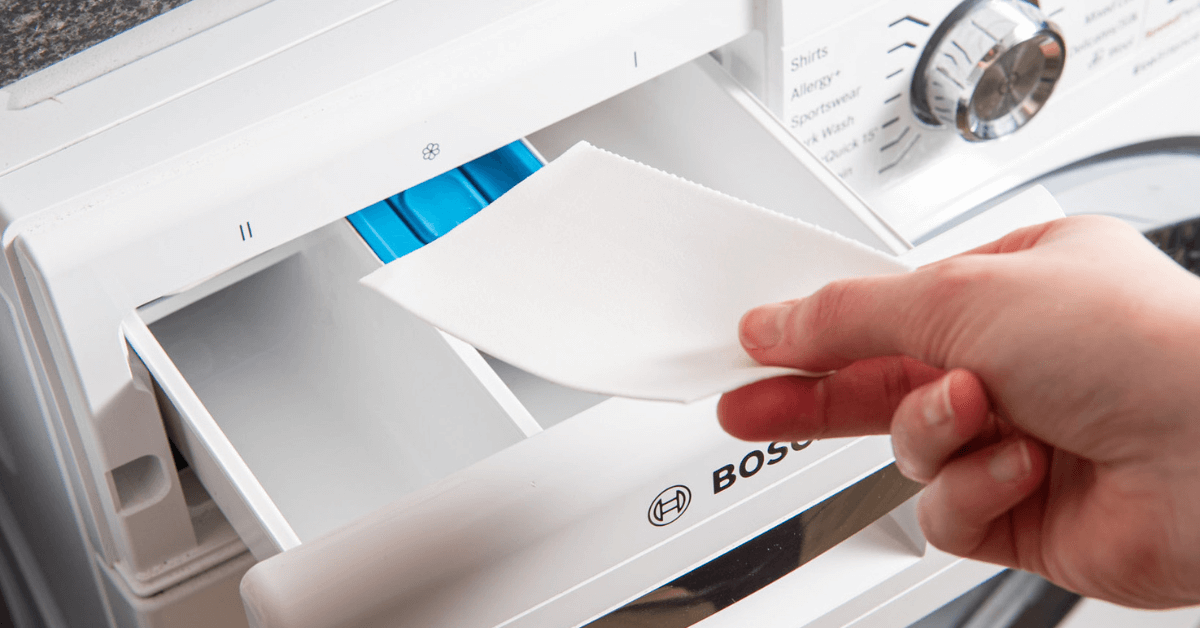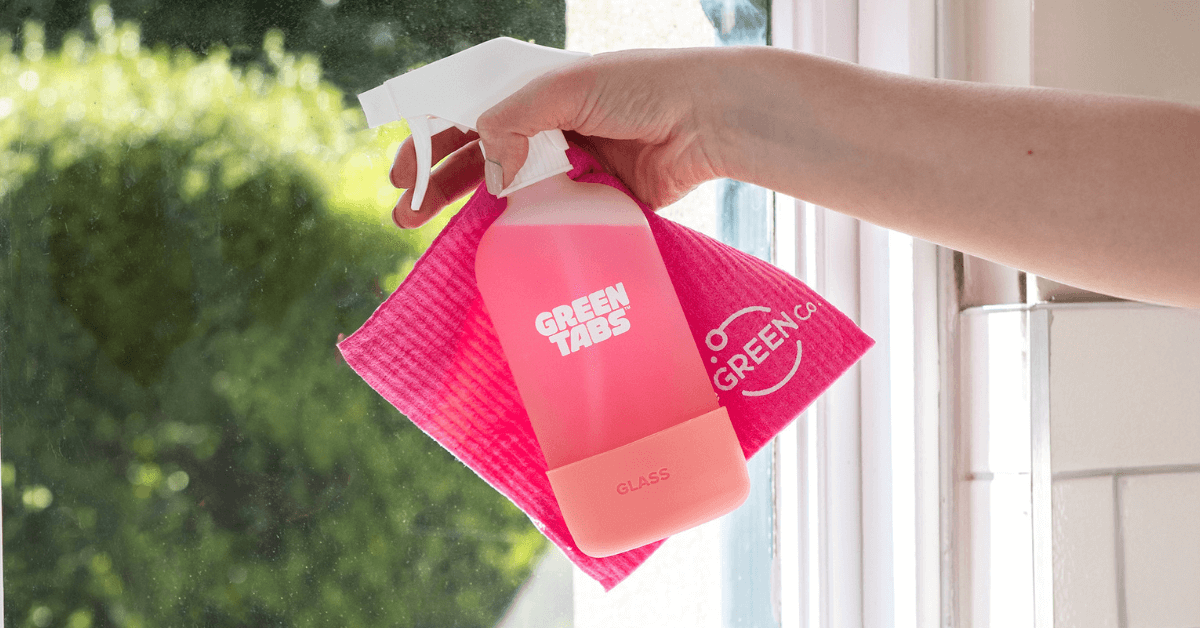Guides – da Andrew Linfoot
26 Ways to Reduce Plastic Waste at Home (Without the Hassle)
26 Ways to Reduce Plastic Waste at Home (Without the Hassle)
You don’t need to overhaul your lifestyle to reduce plastic waste at home. A few simple, plastic-free swaps to your everyday products can make a real difference, without the stress.UK households throw away around 100 billion pieces of plastic packaging a year. From cleaning sprays to food containers, it all adds up.These 26 easy ideas will help you cut plastic waste while keeping your home organised, fresh and low-waste.
1) Ditch Plastic Bottles for Refillable Cleaning Tabs
Most cleaning products come in bulky single-use plastic bottles, used once, then thrown away. The UK alone uses approximately 38.5 million plastic bottles daily, totalling about 14 billion annually. Of these, 57% are recycled, leaving around 6 billion bottles not recycled each year.
The Swap: Cleaning Spray GreenTabs™ turn tap water into powerful, plastic-free cleaners. Just drop a tab into a Glass Forever Bottle, fill with water, and clean as usual. Same deep clean, zero plastic waste.
2) Replace Plastic Laundry Bottles with Condensed Detergent Sheets
Laundry detergent bottles aren’t just bulky cupboard hoggers, they’re also full of water. In fact, liquid detergent is up to 90% water, meaning you’re paying to ship water across the country 🚛.
Worse, most plastic detergent bottles aren’t fully recyclable due to residual liquid and coloured plastic components.
The Swap: Eco laundry detergent and laundry conditioner GreenSheets™ sheets are pre-measured, nature-powered and ultra-compact. Just toss a sheet in with your next laundry load, no spills, no waste.
3) Swap Disposable Sponges & Wipes for Reusable Cloths
Did you know the UK uses 11 billion disposable wet wipes per year, many of which contain plastic fibres that don’t break down?
The same goes for traditional kitchen sponges, which are made with polyurethane plastic and release microplastics into the water supply every time you wash up.
The Swap: Switch to reusable cellulose cloths. They’re super-absorbent, washable, compostable, and last for months.
4) Ditch Cling Film for Reusable Wraps
The UK throws away 1.2 billion metres of cling film every year, that’s enough to wrap around the Earth 30 times! 🌍
The Swap: Beeswax wraps are a reusable, natural alternative that keep food fresh without the plastic waste. They can be washed and reused for up to a year.
5) Swap Plastic-Wrapped Dishwasher Tablets for a Better Alternative
Most dishwasher tablets come wrapped in plastic or contain hidden microplastics that pollute waterways. The UK alone uses over 2.5 billion dishwasher tablets annually.
The Swap: Eco Dishwasher GreenTabs™ are powerful, all in one dishwasher tablets made from natural, non toxic plant and mineral-based ingredients. They cut through grease, remove stains, and leave dishes spotless, without the need for extra salt or rinse aid.
No plastic to unwrap and throw away before you run your dishwasher, the special coating on each GreenTab™ is biodegradable, simply pop a tab into your machine and go
6) Choose Refillable Hand Soap Over Single-Use Plastic Bottles
The average UK household throws away 66 plastic bottles per year, including hand soap dispensers and cleaning sprays.
The Swap: Foaming Hand Soap GreenTabs™ cut down on single-use plastic while keeping your home looking sleek and organised.
7) Bring Your Own Bags & Containers for Shopping
Plastic carrier bags are still a major source of waste, despite charges, the UK still uses over 1 billion plastic bags per year.
The Swap: Keep reusable tote bags in your car, backpack, or by the door, and bring your own containers for bulk food shopping. Less plastic waste and fewer broken handles!
8) Use Refillable Dish Soap Bottles
Most dish soap bottles are made from mixed plastics, which are difficult to recycle. Many contain coloured plastic, which can’t be processed effectively, and residual soap left inside means they often end up in landfill
The Swap: Refillable dish soap dispensers made from glass or stainless steel are a long-term plastic-free alternative. You can also switch to a dish soap bar, which cuts out the plastic completely.
9) Bring Your Own Coffee Cup
Most takeaway coffee cups contain a plastic lining to make them waterproof, making them difficult to recycle. The UK throws away 2.5 billion coffee cups every year, with only 0.25% being recycled
The Swap: A reusable coffee cup means zero waste, plus many coffee shops offer a discount if you bring your own. Collapsible silicone cups make it easy to carry one in your bag. Some cafés are even trialling returnable coffee cup schemes, where you borrow a cup and return it after use.
10) Carry a Reusable Water Bottle
The UK throws away 7.7 billion plastic water bottles every year, and only 57% are recycled. That means billions end up in landfill or the ocean, where they break down into microplastics.
The Swap: A stainless steel or glass water bottle means no more single-use plastic. Refill stations are becoming more common—apps like Refill help you find places to fill up your bottle for free. Over a year, this swap can save hundreds of bottles per person!
11) Switch to a Safety Razor Instead of Plastic Razors
Disposable razors contain plastic handles and non-recyclable blades.
The Swap: Stainless steel safety razors last a lifetime and only require blade replacements.
12) Choose Plastic-Free Toilet Roll Packaging
Most supermarket toilet roll is wrapped in plastic, and even recycled toilet paper still comes in non-recyclable packaging. Over 1.3 million tonnes of tissue products are used in the UK each year.
The Swap: Recycled toilet paper in paper packaging is the best alternative. Some brands also deliver toilet roll in bulk, reducing overall packaging waste. Bamboo toilet paper is another sustainable option, as bamboo grows quickly and requires less water than traditional paper production.
13) Try a Shampoo Bar Instead of a Plastic Bottle
Shampoo bottles are made from thicker plastic, which can’t always be recycled if they contain leftover product. Most shampoo bottles end up in landfill or incineration.
The Swap: Shampoo bars last 2-3 times longer than liquid shampoo, contain no plastic, and don’t leak, making them perfect for travel. Many also come in compostable or recyclable packaging, making them a truly zero-waste alternative.
14) Opt for Refillable Deodorant
Most deodorant packaging isn’t widely recycled, especially aerosol cans and plastic roll-ons, which contain mixed materials that make them impossible to process.
The Swap: Refillable deodorant sticks made from aluminium or compostable cardboard cut down waste dramatically. Some brands offer deodorant cream in glass jars, making it a fully plastic-free alternative. Many last longer than standard deodorants, making them more cost-effective in the long run.
15) Use a Bamboo Toothbrush
Plastic toothbrushes take 500 years to break down, and over 260 million are thrown away in the UK each year.
The Swap: Bamboo toothbrushes are compostable and biodegradable, making them a simple, low-cost swap that drastically reduces waste. Even better, some brands now offer replaceable bamboo heads for electric toothbrushes, cutting plastic waste even further.
16) Choose Loose Fruit & Veg Over Plastic-Wrapped Produce
Supermarkets wrap most fruit & veg in unnecessary plastic, much of which is non-recyclable film. Over 800,000 tonnes of plastic packaging is used in UK supermarkets each year.
The Swap: Shop at greengrocers or farmers' markets, where produce is often packaged plastic-free. Some supermarkets now have refill stations for grains, pasta, and even milk, allowing you to bring your own containers.
17) Use a Milk Delivery Service
Supermarkets sell milk in plastic bottles that aren’t always recycled.
The Swap: Switch to glass bottle milk deliveries from local dairies.
18) Switch to Compostable Bin Liners
Standard bin bags are made from virgin plastic, which takes centuries to degrade. Even biodegradable plastic bags still leave behind microplastics.
The Swap: Compostable bin liners break down naturally, making them the best alternative for general waste. Some councils even offer food waste collection with compostable liners. Alternatively, you can line your bin with newspaper or use no liner at all if you rinse your bin regularly.
📦 Bonus tip: When you receive a delivery from us, you’ll notice it comes in a compostable bag, you can reuse this as a food waste bin liner!
19) Choose Wooden Pegs Over Plastic Ones
Plastic pegs become brittle in the sun, eventually breaking into microplastics.
The Swap: Wooden pegs last longer and can be composted at the end of their life. Steel pegs are another durable alternative, they don’t rust, break, or contribute to plastic waste.
20) Switch to Plastic-Free Cleaning Brushes
Plastic scrub brushes break down into microplastics.
The Swap: Use wooden or coconut fibre scrubbers instead.
21) Swap Chewing Gum for Plastic-Free Alternatives
Most commercial chewing gum contains polyvinyl acetate, a synthetic plastic that doesn’t break down and contributes to litter pollution. In the UK, councils spend around £60 million a year cleaning up gum from streets. That’s a huge environmental cost for something we barely think about.
The Swap: Opt for plastic-free chewing gum made from chicle, a natural tree sap, or try alternatives like chewable mints that don’t stick to pavements or contain plastic. Brands like Simply Gum and Nuud offer fully biodegradable options.
22) Swap Plastic Glitter for Biodegradable Glitter
Traditional glitter is made from tiny microplastics that wash into waterways, harming marine life. A single tub of glitter contains thousands of microplastic particles that can take centuries to break down.
The Swap: If you love a bit of sparkle, choose biodegradable glitter made from plant cellulose. It looks just as shimmery but breaks down naturally. For craft projects, try using coloured sand, edible glitter, or crushed petals for a plastic-free alternative.
23) Ditch Balloons for Reusable Decorations
Balloons are a major environmental hazard. When released, they often end up in oceans, where marine animals mistake them for food. Sea turtles are particularly at risk, one study found that 52% of turtles that ingested plastic had eaten balloons.
The Swap: For celebrations, use paper bunting, fabric banners, or reusable pom-poms instead of balloons. If you want something eye-catching, try blowing bubbles or using kites, both are fun and 100% biodegradable!
24) Choose Plastic-Free Tea Bags
Many teabags contain polypropylene, a plastic used to seal the bags, which means they don’t fully break down in compost. Over 100 million cups of tea are consumed daily in the UK, meaning billions of plastic-containing teabags end up in landfill every year.
The Swap: Look for plastic-free tea bags or switch to loose leaf tea with a reusable strainer. Many brands now offer compostable tea bags, just check the packaging to make sure they’re fully biodegradable.
25) Swap Plastic Lint Rollers for a Reusable Alternative
Disposable lint rollers might seem harmless, but most contain plastic-coated sheets and a plastic handle that ends up in landfill. With each roll used, you're throwing away layers of non-recyclable plastic.
The Swap: Try a reusable fabric lint remover or a natural rubber lint brush, both work just as well (if not better) and last for years.
26 ) Plastic Ziplock Bag Alternatives
Traditional plastic ziplock bags may be convenient, but they’re a major contributor to household plastic waste.
The Swap: A simple switch to reusable silicone food bags can make a huge difference over time, they’re durable, leakproof, and perfect for snacks, leftovers, freezer storage, and even travel.
The Truth About Plastic-Free Swaps
❌ “I don’t have time to research plastic-free products.”✔ You don’t need to. These swaps fit effortlessly into your routine.
❌ “Aren’t plastic-free alternatives more expensive?”✔ Plastic-free alternatives save money over time by reducing waste, lasting longer, and cutting out unnecessary packaging costs.
❌ “Do these swaps really make a difference?”✔ Yes! Every bottle saved from landfill adds up, small changes make a big impact.
Take the First Step, It’s Easy!
You don’t have to overhaul your life to reduce plastic waste. These simple swaps make a real impact, without extra effort.
💚 Try one swap today and start reducing plastic waste effortlessly.
👉Shop our full range of eco-friendly cleaning products for the whole home!





























